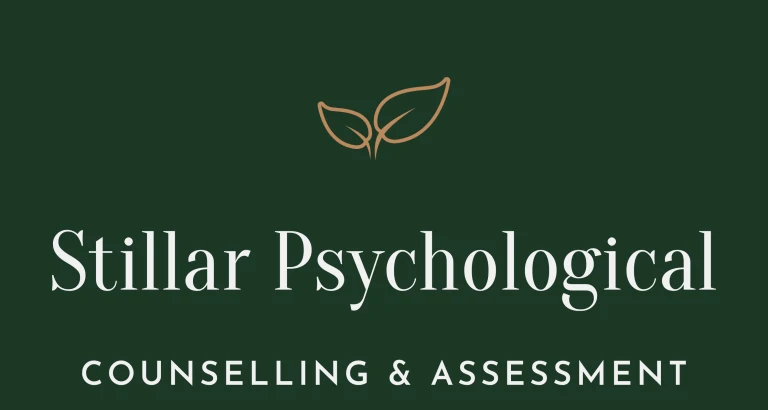Living with attention-deficit/hyperactivity disorder can bring daily challenges. However, behavioral therapy for ADHD brings a structured path toward better self-management.
Working closely with an ADHD therapist can support individuals in dealing with core symptoms while also helping ease connected struggles like anxiety and depression. Below, we take a thoughtful look at how behavioral therapy creates real change across different stages of life.
Behavioral Therapy For ADHD: A Basis for Treatment
ADHD is a neurodevelopmental condition that affects attention, impulsivity, and activity levels. For many, focusing on tasks or maintaining organization feels like an uphill climb.
Children may find it hard to sit still during lessons. Meanwhile, adults often wrestle with missed deadlines or forgotten responsibilities. Hyperactivity might look like endless movement in younger kids, but it can shift into internal restlessness as teens and adults grow older.
The symptoms of ADHD are not limited to one type of experience. Some people mainly struggle with inattention and often lose track of details or zone out during conversations. Others deal mainly with hyperactivity and impulsiveness, which lead to hasty decisions or constant fidgeting.
Many face a combined presentation of symptoms, which can impact academic success, social relationships, and workplace performance.
What is Behavioral Therapy?
Behavioral therapy is a therapeutic method focused on helping individuals change specific actions by building healthier patterns and choices. Instead of exploring deep emotional causes, this approach concentrates on what is happening in the present and what can be improved moving forward.
The therapist and client work together to set clear goals based on behaviors that are causing difficulties. Using positive reinforcement and practical feedback, therapy encourages small changes that lead to larger shifts over time. For someone living with ADHD, this might involve practicing new habits for organization, time management, or emotional control.
Behavioral therapy does not overwhelm clients with complex theories or heavy discussions. Instead, it offers practical, hands-on strategies that can be immediately applied in real life. This straightforward style makes it a particularly useful tool for those dealing with the fast pace and distraction often linked to ADHD.
How Behavioral Therapy Targets ADHD Symptoms
One of the greatest strengths of behavioral therapy for ADHD is its focus on very specific behaviors rather than vague ideas of improvement. Instead of aiming broadly at “getting better,” therapy breaks goals down into manageable parts. A young student who struggles to complete homework might work on setting a daily study routine. Meanwhile, an adult might target showing up to meetings on time.
Rewards play a big part in behavioral therapy. Positive behaviors are recognized and celebrated, which increases the chance they will happen again. Success might be marked by a small treat, praise, or even just the satisfaction of hitting a personal milestone. Over time, this consistent focus on achievements builds momentum and a sense of personal agency.
Problem behaviors are not met with shame or punishment. Instead, therapists help individuals gently reduce these behaviors by presenting alternative actions that better meet their needs. This could mean replacing a disruptive outburst with a simple request for help or turning procrastination into scheduled work breaks.
Building Routine and Structure Through Therapy
Routine can be a powerful anchor for people living with ADHD. Many struggle to maintain focus when their environment is unpredictable or disorganized. Behavioral therapy for ADHD tackles this by helping individuals design daily structures that reduce stress and confusion.
An ADHD therapist often works closely with clients to build customized routines around their natural rhythms. Morning routines might involve clear steps like getting dressed, packing lunch, and checking a daily planner. Evening routines could focus on winding down through scheduled relaxation and consistent bedtimes.
Consistency is the secret. Repeating daily structures helps individuals gradually create habits that feel natural rather than forced. This repetition helps reduce reliance on willpower alone and make it easier to stick with plans even on tough days. Over time, strong routines not only improve task completion but also boost confidence and emotional stability.
Families also play a large part in this process, especially for children. Parents might work with a therapist to create visual schedules or reward charts that help younger kids stay on track. Teens and adults, meanwhile, might use phone alarms, sticky notes, or personal planners to organize tasks independently.
Dealing with Impulsivity Using Behavioral Techniques
Impulsivity can cause major disruptions for individuals living with ADHD. Quick decisions without thinking through consequences might lead to trouble at school, conflicts at work, or misunderstandings among friends and family. Behavioral therapy for ADHD offers specific strategies to help slow down the rush to react.
One approach involves teaching clients to pause before responding. This might be as simple as counting to five before answering a question or practicing deep breathing when feeling overwhelmed. These small pauses create a window for more thoughtful decision-making.
Another technique focuses on identifying triggers. Clients learn to spot the situations that often lead to impulsive actions, such as feeling bored, pressured, or emotionally charged. Recognizing these patterns allows for early intervention and gives the individual a chance to apply coping skills before the impulse takes over.
Role-playing is also a common method used in therapy. Practicing different scenarios in a safe environment builds confidence for handling real-world situations. Through repetition and positive feedback, clients strengthen their ability to make choices that support their goals rather than derail them.
Managing Emotional Dysregulation in ADHD
Strong emotions often come hand-in-hand with ADHD. Feelings can surge quickly and intensely. This will leave individuals struggling to manage frustration, sadness, excitement, or anger. Emotional dysregulation may cause children to melt down over small frustrations, or adults to feel overwhelmed by criticism. Behavioral therapy offers practical tools for managing these emotional waves.
One of the first steps involves building awareness. Clients learn to recognize physical signs of rising emotions, such as tight muscles, a racing heart, or rapid breathing. Spotting these early warning signs allows for quicker intervention before emotions spiral out of control.
Therapists work with clients to develop coping strategies that fit their personal needs. These might include breathing exercises, movement breaks, grounding activities, or using specific calming phrases. Instead of reacting automatically, individuals learn to apply chosen techniques that help them return to a calmer state.
Behavioral therapy also emphasizes the value of small successes. Celebrating moments of emotional regulation, even minor ones, helps build momentum for future growth. Over time, clients discover that they are not powerless in the face of strong feelings. They develop a toolkit for emotional resilience that supports better decision-making, stronger relationships, and more consistent moods.
The Connection Between ADHD, Anxiety, and Depression
When ADHD goes untreated, it often brings more than just distractibility or impulsiveness. Many individuals experience rising feelings of anxiety and sadness. Struggling to keep up with daily demands, missing deadlines, or feeling misunderstood can slowly chip away at self-confidence. Over time, this emotional strain may develop into deeper depression or persistent worry.
Behavioral therapy for ADHD does not treat these challenges as isolated issues. Instead, therapy works to untangle the complicated relationship between inattentiveness, overwhelming emotions, and low mood. Small achievements in managing ADHD symptoms often ease feelings of hopelessness or fear.
Therapists working closely with clients recognize when anxiety creeps in or when depression starts influencing behavior. They adjust goals and strategies to meet emotional needs as they arise and offer steady support during setbacks.
When treated together, ADHD, anxiety, and depression no longer feel like a tangled, insurmountable problem. Instead, they become manageable parts of a larger story of resilience and hope.
How the ADHD Therapist Supports Growth
An ADHD therapist serves as more than just a professional adviser. They become a committed partner in the journey toward building a better daily life. Individuals working with an ADHD therapist often discover their first safe space to explore what is truly happening beneath the surface.
Therapists help set realistic goals that match each person’s unique strengths and struggles. Sessions may focus on organizing tasks, handling emotional spikes, or managing social pressures, depending on what matters most to the client. Along the way, small victories like completing homework on time or communicating more effectively become celebrated milestones.
Rather than judging setbacks, ADHD therapists reframe challenges as learning opportunities, keeping momentum moving forward.
In every session, the focus remains on building confidence and maintaining progress at a pace that feels respectful and empowering. Therapy becomes not just a treatment, but a trusted partnership rooted in patience, understanding, and belief in long-term success.
Behavioral Therapy Strategies for Children with ADHD
When young children experience ADHD symptoms, it can disrupt not just their academic lives but also their relationships and self-esteem. Behavioral therapy offers simple, effective tools to help children feel capable and successful.
Reward charts are a common tool, giving children a visual reminder of their achievements. Positive reinforcement, such as specific praise or small rewards for effort, helps encourage continued growth. Children learn they have the power to shape their environment through their choices.
Skill-building exercises also play a major role. Therapy sessions might involve practicing turn-taking, listening carefully, or managing big feelings in playful and relatable ways. These lessons translate to better experiences at home and school and help children feel more included.
Behavioral therapy sets up children to feel proud of themselves by breaking large challenges into smaller, more manageable steps. Rather than focusing on mistakes, therapy highlights strengths and encourages resilience from an early age.
Supporting Teens with ADHD Through Behavioral Therapy
Adolescence brings a new layer of complexity for teens living with ADHD. Academic expectations grow, social relationships become more layered, and independence becomes increasingly important. Behavioral therapy helps teenagers tackle these challenges using strategies specific to their stage of development.
Organizational skills are often a major focus. Therapists work with teens to create planners, set alarms, or develop checklists that make responsibilities less overwhelming. Sessions may also cover communication skills and help teens express their feelings clearly among peers and adults.
Social struggles are common during the teenage years, especially for those living with ADHD. Therapy creates a safe space to practice conflict resolution, reading social cues, and maintaining friendships.
Academic support remains central. Therapists help teens discover study techniques that fit their learning style, easing frustration and improving classroom performance. Bit by bit, therapy helps teens feel more capable, confident, and in control of their futures.
How Adults Benefit from Behavioral Therapy for ADHD
Many adults living with ADHD spent their younger years feeling misunderstood. Left untreated, symptoms like procrastination, distractibility, and forgetfulness often continue into adulthood.
Behavioral therapy for ADHD offers adults a powerful chance to reset their daily rhythms. Sessions often focus on practical goals like creating effective routines, breaking large tasks into smaller steps, and building systems to manage time more effectively.
Adults often face emotional challenges tied to years of internalized frustration. Therapy sessions help deal with negative self-talk, self-doubt, and shame while building new patterns of self-respect. Setting achievable goals and celebrating progress, therapy helps adults reconnect to their strengths.
Workplace challenges and relationship hurdles often feel more manageable after developing new coping strategies. Behavioral therapy opens the door to greater self-compassion, stronger connections, and the ability to meet goals without constant overwhelm.
Combining Behavioral Therapy with Other Treatments
Behavioral therapy often fits naturally into broader treatment plans, working alongside other approaches to create a strong support network. For some individuals, medication may help balance brain chemistry and make it easier to focus during therapy sessions. Others might find mindfulness practices helpful for calming racing thoughts.
Coaching, support groups, and even dietary changes may be instrumental in ADHD care. Behavioral therapy acts as the groundwork. It offers practical strategies, while other treatments tackle different aspects of well-being.
Working across several areas allows individuals to experience more holistic growth. Rather than relying on one method alone, therapy encourages blending different tools in ways that fit personal needs and lifestyles. Each element complements the other, creating a layered, adaptable plan for success.
How We Support Clients at Stillar Psychological
Stillar Psychological knows that managing ADHD is not just about fixing symptoms. It is about building a stronger, fuller life filled with possibility. Our team brings a warm, thoughtful approach to behavioral therapy for ADHD, working closely with clients of all ages.
We believe every individual deserves support that feels customized to their experiences, not a one-size-fits-all solution. Using evidence-based methods like DBT, CBT, EFT, and EMDR, we craft personalized strategies that focus on real-world success and emotional growth.
ADHD often arrives alongside anxiety or depression, complicating daily life in ways others may not see. We meet these challenges with compassion and help individuals build emotional resilience while improving practical skills.
Our team celebrates progress, large and small, and helps clients rediscover their inner strengths. Life with ADHD can be exciting and rewarding, and it starts with the right support.
Ready to take the first step? Book an appointment online or call Stillar Psychological at (780) 999-2023. Let’s work together toward a future full of hope.





















